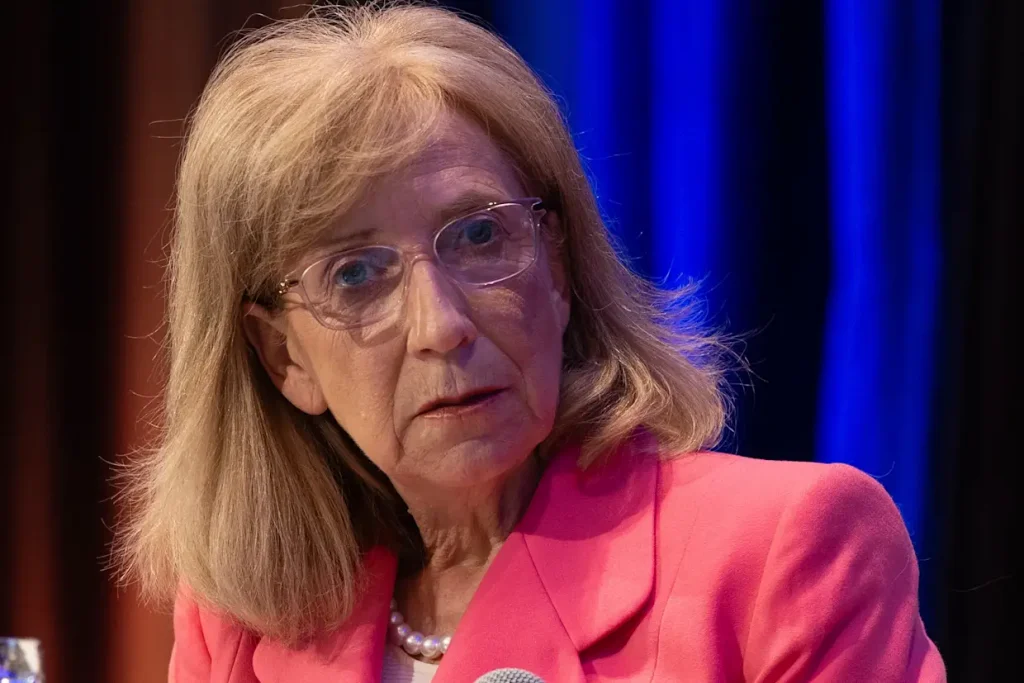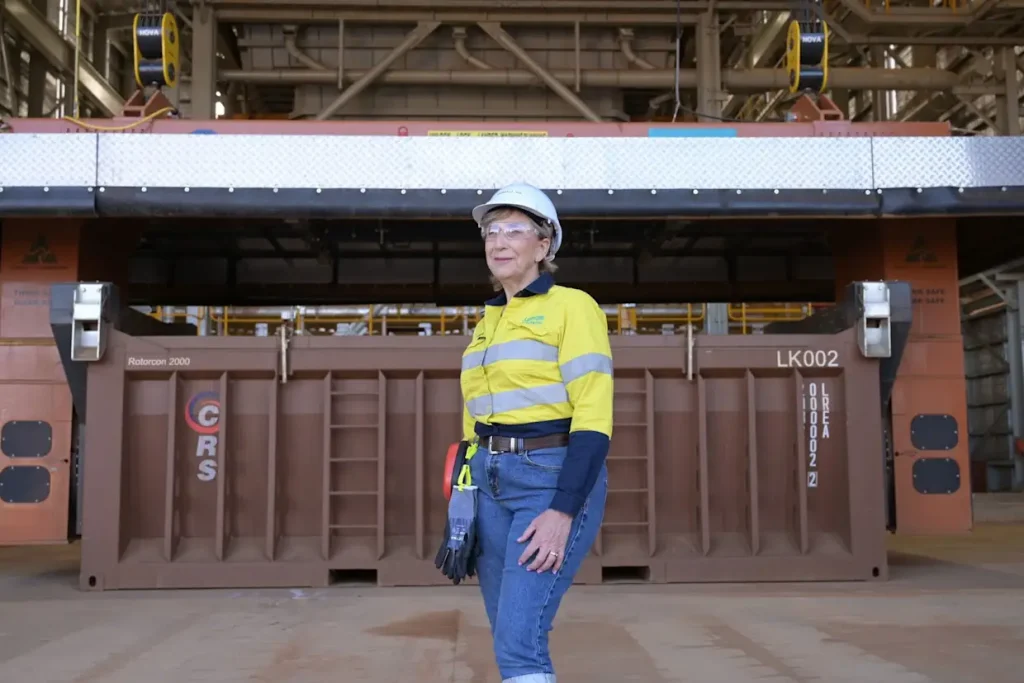
Article by Jennifer Hewett and Mark Wembridge, courtesy of Financial Review
28.04.2025
Australia’s most successful rare earths miner and the key global alternative to China’s stranglehold on supply has savaged the Albanese government’s plan to create a critical minerals stockpile.
Amanda Lacaze, chief executive of Lynas Rare Earths, suggested the government was trying to set itself up as a competitor to her company, with the risk it will undercut Lynas on pricing when it tries to sell products to non-Chinese customers. She warned the policy could also prop up unviable projects.

“It seems to me that the Labor Party, if re-elected, proposes to buy rare earth products at uneconomic prices,” Lacaze told The Australian Financial Review. “Am I going to meet a representative from the critical minerals office in our customers’ foyers? At what price will they be selling? Will they undercut us?
“From our perspective, the proposed policy will not suddenly transform uneconomic projects into economic projects … it will not underwrite sustained success.”
Lacaze said that despite Lynas being Australia’s only producer of rare earths, the government had not briefed the company on its stockpile policy, let alone consulted her.
Labor announced last week that it will invest $1.2 billion in national offtake agreements and selective stockpiling to secure a strategic supply of the critical minerals that are most important to Australia’s national security and that of its key partners.
This strategy will focus on supplies of the rare earth elements that are vital for advanced technology, such as electric vehicles, weaponry, robots, wind turbines and semi-conductor chips powering AI.
Some other Australian rare earths players are supportive of the policy, including Iluka Resources, which has a refinery under construction in Western Australia, and Arafura Resources in the Northern Territory.
Both have received sizeable government assistance, mainly in the form of cheap loans. Arafura is looking for additional equity investors before it starts three years of construction.
Arafura Resources chief executive Darryl Cuzzubbo praised the government’s initiative as “clever”, saying it challenges China’s pricing monopoly while setting up a mechanism – the stockpile – to provide stability.
“The number one reason you haven’t had rare earths projects outside China is because you haven’t had fair market pricing,” he said.
China has spent decades establishing its dominance of the rare earths market, especially the refining and processing of these minerals into the crucial metals and high-performance magnets that underpin much of modern industry.
Despite the risks of allowing China to effectively control the market through cheaper prices and price manipulation of the 17 rare earth elements, few global customers are willing to pay a price premium to diversify supply.
But the threat posed by China’s dominance of the market has taken on greater urgency due to Donald Trump’s high US tariffs and the rolling global trade war.
After sporadic restrictions on some rare earths exports, China suspended shipments of magnets from Chinese ports to the US this month subject to the start of a new licensing regime.
Even with emergency stockpiles of a few months, the prospect of imminent industrial production bottlenecks and delays poses another challenge for the global economy.
Trump has fast-tracked mining the ocean seabed to secure critical minerals, but this would be an even more complex and protracted process.
Labor’s announcement of its latest critical minerals package is in part an attempt to offer the Trump administration a bargaining chip to secure tariff exemptions for other Australian exports.
But the policy has been under consideration for some time as a long-term play to also entice customers in Asia and Europe to sign contracts for Australia’s rare earths at prices that would create greater investment in a viable domestic industry.
Lynas’ Lacaze said non-Chinese customers would realise they will have to pay a risk premium for alternative supplies of critical minerals, but only if these are efficient and competitive.
She said governments needed to address the real challenges in the industry, such as the high cost of energy and lack of productivity. The Minerals Council of Australia has made similar arguments.
“It’s important that these businesses have a long-term competitive advantage and pathway to be self-sustaining to avoid creating a class of businesses that rely on government subsidies,” Lacaze said. “I can’t see that this is going to do anything other than prop up projects which would otherwise not be economic.”
Cuzzubbo agreed the government should not end up subsidising non-commercial projects in rare earths.
Lacaze is also concerned that the government will need to eventually sell its stockpile at prices and levels that could destabilise the market.
More than a decade ago China tried to thwart Lynas’ growth by flooding the market with product to drive down prices. The company was only saved by long-term capital from Japan, which was keen to diversify after China had temporarily cut off its supplies in 2010 in a territorial dispute.

As well as building a new plant in Kalgoorlie for preliminary processing from its Western Australian mine, Lynas has a plant in Malaysia that is the largest producer of separated “light” rare earths like neodymium and praseodymium (NdPr) outside of China. Once a new production line to separate the less plentiful but vital “heavy” rare earths like dysprosium and terbium starts in Malaysia this year, Lynas will be the only commercial non-Chinese producer of these products.
Lacaze said it made more business sense for Lynas to consider expanding further in Malaysia, rather than at a higher-cost plant planned in Texas. This US project is yet to gain regulatory approval despite receiving significant funding from the US Department of Defence three years ago.
Lynas has cut output to take advantage of the global trade war as it seeks out new buyers that want to avoid sourcing minerals from China.
“Taking our time to get full advantage out of this crisis is our number one priority,” Lacaze said. The miner would “focus on building our competitive advantage while everything around us gets thrown up in the air like a pack of cards”.
“The last thing that we need to do is produce huge quantities of material that either finds a home in our warehouse or finds a home at a lower price elsewhere.”
Lynas posted third-quarter gross sales revenue of $123 million on Monday, which was up from the $101 million recorded in the same quarter last year, but below consensus forecasts of $156 million. The average selling price improved during the period to $50.50 per kilogram, the highest level since 2022.















